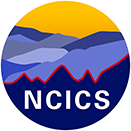
Xiangdong Zhang
Phone: 828-271-4384
Email: xzhan238@ncsu.edu
 Orcid: http://orcid.org/0000-0001-5893-2888
Orcid: http://orcid.org/0000-0001-5893-2888
Biography
Dr. Xiangdong Zhang is a senior scientist at NCICS and a research professor at the Department of Marine, Earth and Atmospheric Sciences at North Carolina State University. He provides scientific input and leadership within the Assessments Technical Support Unit. He also works on attribution of extreme climate events. Prior to joining NCSU, he was a professor at the University of Alaska Fairbanks.
Xiangdong Zhang’s research interest lies in improving systematic understanding of variability, changes, and extreme events of Arctic and Northern Hemisphere climate systems. Specialized areas include atmospheric circulation dynamics; storm track dynamics; Arctic-lower latitude linkages; atmosphere–sea ice–ocean–hydrology interactions; extreme weather, climate, and hydrology events; Arctic heat and water cycle; and Arctic sea ice mass balance. He has employed dynamic, statistical, and artificial intelligence analysis approaches and Earth system model simulations to conduct his research, working withstudents, postdocs, and other collaborators. His research results have been published in Nature Reviews Earth & Environment, Nature Climate Change, Nature Geoscience, Nature Communications, Science Advances, Journal of Climate, Geophysical Research Letters, and other highly regarded journals. Many of his publications have been well cited in the scientific community and reported and highlighted by media outlets.
Xiangdong Zhang has also played various national and international level leadership roles for promoting leading-edge research and developing future research plans in the climate and atmospheric science community. He is now co-chairing the Research Priority Team 1 on the Role of Arctic in the Global System for the International Arctic Science Committee and Fourth International Conference on Arctic Research Planning Processes. He has also recently served as a co-chair of the US CLIVAR Arctic-Midlatitude Working Group, a founding member of the international CLIVAR/CliC Northern Oceans Region Panel, and an international advisory board member of the EU Horizon 2020 Project PolarRES.
Publications
Huo, Y., H. Wang, M. Veneziani, D. Comeau, R. Osinski, B.R. Hillman, E. Roesler, W. Maslowski, P.J. Rasch, W. Weijer, I. Baxter, Q. Fu, O.A. Garuba, W. Ma, M.W. Seefeldt, A. Sweeney, M. Wu, J. Zhang, X. Zhang, Y. Zhang, X. Asay-Davis, A.P. Craig, Y.J. Lee, W. Lin, A.F. Roberts, J.D. Wolfe, and S. Zhang, 2025: E3SM-Arctic: Regionally refined coupled model for advanced understanding of Arctic systems interactions. Journal of Advances in Modeling Earth Systems, 17 (6), e2024MS004726.
https://doi.org/10.1029/2024MS004726
Luo, B., D. Luo, C. Xiao, D. Chen, I. Simmonds, X. Zhang, S. Li, W. Zhang, J. Shi, and Y. Diao, 2025: Recent Accelerated Decadal Shift in Winter North American Temperature Patterns Under Pacific-Atlantic Decadal Variability. Earth’s Future, 13 (10), e2025EF006006.
https://doi.org/10.1029/2025EF006006
Ma, Z., J. Huang, X. Zhang, Y. Luo, T. Dou, and M. Ding, 2025: Deep learning-based reconstruction of monthly Antarctic surface air temperatures from 1979 to 2023. Scientific Data, 12 (1), 847.
https://doi.org/10.1038/s41597-025-05175-6
Yang, X., X. Zhang, X. Gong, M. Frey, S. González-Herrero, A. Weiss, R. Engbers, O. Persson, M. Radenz, I. Gorodetskaya, T. Bracegirdle, and R. Hall, 2025: Why Polar Winter Climate and Processes? Bulletin of the American Meteorological Society, 106 (10), E2036-E2042.
https://doi.org/10.1175/BAMS-D-25-0216.1
Zhang, X., T. Vihma, A. Rinke, G.W.K. Moore, H. Tang, C. Äijälä, A. DuVivier, J. Huang, L. Landrum, C. Li, J. Zhang, L. Boisvert, B. Cheng, J. Cohen, D. Handorf, E. Hanna, K. Hartmuth, M.O. Jonassen, Y. Luo, S. Murto, J.E. Overland, C. Parker, W. Perrie, K. Schulz, A. Schweiger, T. Spengler, M. Steele, W.-w. Tung, N. Tyrrell, E. Valkonen, H. Wang, Z. Wang, W. Weijer, S. Wickström, Y. Wu, and M. Zhang, 2025: Weather and climate extremes in a changing Arctic. Nature Reviews Earth & Environment.
https://doi.org/10.1038/s43017-025-00724-4
Choi, Y., J.-H. Kim, S.-Y. Jun, T. Choi, and X. Zhang, 2024: Multi-year assessment of the impact of ship-borne radiosonde observations on polar WRF forecasts in the Arctic. Geoscience Letters, 11 (1), 8. https://doi.org/10.1186/s40562-024-00326-w
Polyakov, I.V., T.J. Ballinger, R. Lader, and X. Zhang, 2024: Modulated trends in arctic surface air temperature extremes as a fingerprint of climate change. Journal of Climate, 37 (8), 2381-2404. https://doi.org/10.1175/JCLI-D-23-0266.1
Schreck, C.J., III, D.R. Easterling, J.J. Barsugli, D.A. Coates, A. Hoell, N.C. Johnson, K.E. Kunkel, Z.M. Labe, J. Uehling, R.S. Vose, and X. Zhang, 2024: A rapid response process for evaluating causes of extreme temperature events in the United States: The 2023 Texas/Louisiana heat wave as a prototype. Environmental Research: Climate, 3 (4), 045017. https://doi.org/10.1088/2752-5295/ad8028
Zhang, X., X. Chen, A. Orr, J.E. Overland, T. Vihma, M. Wang, Q. Yang, and R. Zhang, 2023: Preface to the special issue on changing Arctic climate and low/mid-latitudes connections. Advances in Atmospheric Sciences, 40 (12), 2135-2137. https://doi.org/10.1007/s00376-023-3015-8
Eischeid, J.K., M.P. Hoerling, X.-W. Quan, A. Kumar, J. Barsugli, Z.M. Labe, K.E. Kunkel, C.J. Schreck, D.R. Easterling, T. Zhang, J. Uehling, and X. Zhang, 2023: Why has the summertime central U.S. warming hole not disappeared? Journal of Climate, 1-49. https://doi.org/10.1175/JCLI-D-22-0716.1
Rabe, B., T. Martin, A. Solomon, K.M. Assmann, L.C. Biddle, T. Haine, T. Hattermann, F.A. Haumann, A. Jahn, T. Karpouzoglou, G. Laukert, A.N. Garabato, E. Rosenblum, E. Sikes, L. Yin, and X. Zhang, 2023: Polar fresh water in a changing global climate: Linking Arctic and Southern Ocean processes. Bulletin of the American Meteorological Society, 104 (5), E970-E979. https://doi.org/10.1175/BAMS-D-23-0046.1
Zhang, J., X. Zhang, J.E. Walsh, E. Roesler, and B. Hillman, 2023: Concurrence of blowing snow and polynya enhances arctic surface–atmosphere interaction: A modeling study with an extreme wind event in 2018. Environmental Research: Climate, 2 (1), 011004. https://doi.org/10.1088/2752-5295/acb9b1
Zhang, X., H. Tang, J. Zhang, J.E. Walsh, E.L. Roesler, B. Hillman, T.J. Ballinger, and W. Weijer, 2023: Arctic cyclones have become more intense and longer-lived over the past seven decades. Communications Earth & Environment, 4 (1), 348. https://doi.org/10.1038/s43247-023-01003-0
Google Scholar Publications List: https://scholar.google.com/citations?user=0LolwH8AAAAJ&hl=en&oi=sra
